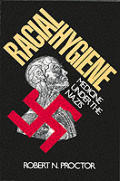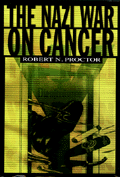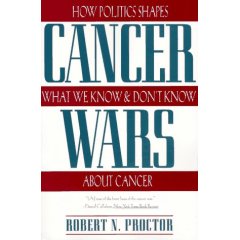 |
 |
| |
| Faculty |
| By Field |
Endowed Chairs
Baker, Keith
Beinin, Joel
Bernstein, Barton
Buc, Philippe
Camarillo, Al
Carson, Clayborne
Chang, Gordon
Como, David
Corn, Joseph
Crews, Robert
Daughton, J.P.
Duus, Peter
Findlen, Paula
Frank, Zephyr
Freedman, Estelle
Haber, Stephen
Hanretta, Sean
Herzog, Tamar
Holloway, David
Jolluck, Katherine
Kahn, Harold
Kennedy, David
Klein, Herbert
Kollmann, Nancy
Lewis, Mark Edward
Lewis, Martin
Lougee Chappell, Carolyn
Mancall, Mark
Miller, Kathryn
Morris, Ian
Naimark, Norman
Proctor, Robert N.
Rakove, Jack
Riskin, Jessica
Roberts, Richard
Robinson, Paul
Rodrigue, Aron
Satia, Priya
Schiebinger, Londa
Seaver, Paul
Sheehan, James
Sommer, Matthew
Stansky, Peter
Weiner, Amir
White, Richard
Wigen, Karen
Winterer, Caroline
Zipperstein, Steven
|
|
 |
|
 |
RESEARCH INTERESTS:
My current work centers around the history of scientific controversy, especially in 20th and 21st century science, technology, and medicine. I also work on the history of scientific rhetoric, tobacco and body history, Nazi science, expert witnessing, evolution and human origins, geology and gemstone aesthetics, and the cultural production of ignorance (agnotology). I am presently working on a book ("Darwin in the History of Life") arguing that the 19th century evolution revolution can be seen as an effort to historicize life. I am also finishing a book on the history of the lapidary art ("Agates Eyes") and a book on changing interpretations of the oldest tools ("The Acheulean Enigma").
COURSES TAUGHT:
- World History of Science I: From Prehistory through the Scientific Revolution
- World History of Science II: From the Scientific Revolution to Global Climate Change
- Human Origins: Evidence, Ideology and Controversy
- Tobacco and Health in World History
- Science & the Law
- Darwin in the History of Life
- Science Under Banners: Political Histories of Science
- Biology and Social Issues
SELECTED PUBLICATIONS:
 |
Racial Hygiene: Medicine Under the Nazis (Harvard University Press, 1988; now in 6th printing). |
 |
Value-Free Science? Purity and Power in Modern Knowledge (Harvard University Press, 1991). An effort to historicize the ideals of objectivity and Wertfreiheit. |
 |
The Nazi War on Cancer (Princeton University Press, 1999). Winner of 1999 Viseltear Award. Translated into Italian, Turkish, Polish, Japanese, German, French and Portuguese. |
 |
Cancer Wars: How Politics Shapes What We Know and Don't Know About Cancer (Basic Books, 1995). Inspired a four-part PBS/Channel 4 television documentary; translated into Japanese and (parts) German. |
ARTICLES:
- "Three Roots of Human Recency: Molecular Anthropology, the Refigured Acheulean, and the UNESCO Response to Auschwitz," Current Anthropology 44 (April 2003): 213-40. WInner of Prize from General Anthropology Division of AAA (2004).
- "Should Medical Historians be Working for the Tobacco Industry?" Lancet, 383 (April 10, 2004): 1174-75.
- "Tobacco and Health," Expert Report submitted in United States of America vs. Philip Morris, in Journal of Philosophy, Science and the Law, April 2004, online at: http://www.psljournal.com/archives/papers/tobacco.cfm.
- "Anti-Agate: The Great Diamond Hoax and the Semiprecious Stone Scam," Configurations, 9 (2001): 381-412. Also online at: http://muse.jhu.edu/journals/configurations/v009/9.3proctor.html
- "Tobacco and the Global Lung Cancer Epidemic," Nature Reviews Cancer, 1 (2001): 82-86
- "Popular Rockhounding," in the Encyclopedia of Recreation and Leisure in America, ed. Gary Cross (New York: Charles Scribner's 2004).
- "Learning from Philip Morris: Japan Tobacco's Strategies Regarding Evidence of Tobacco Health Harms as Revealed in Internal Documents from the American Tobacco Industry" (with Kaori Iida), Lancet, 363 (May 2004): 1820-24.
- "The Nazi War on Tobacco: Ideology, Evidence, and Public Health Consequences," Bulletin of the History of Medicine (1997): 435-88.
- "The State of the Play: `Outlets' from Final Exams in Dr. Proctor's History of Science 122 Class," History of Science Society Newsletter, 32 (Oct. 2003): 9-21.
- "Schairer and Schöniger's Forgotten Tobacco Epidemiology and the Nazi Quest for Racial Purity," International Journal of Epidemiology, 30 (2001): 31-34. Also online at: http://ije.oupjournals.org/cgi/content/full/30/1/31.
- "Expert Witnesses Take the Stand," Nature, 407 (2000): 15-17.
- "Nazi Science and Nazi Medical Ethics: Some Myths and Misconceptions," Perspectives in Biology and Medicine, 43 (2000): 335-46."What Causes Cancer? A Political History of Recent Debates," in Thinking about Evolution: Historical, Philosophical and Political Perspectives (Festschrift for Richard Lewontin), ed. Rama S. Singh et al. (Cambridge University Press, 2000), pp. 568-82.
ONLINE ARTICLES AND INTERVIEWS:
PRIZES AND FELLOWSHIPS:
- Fellow of the American Academy of Arts and Sciences (2002- )
- Article Prize, General Anthropology Division, AAA (2004)
- Guggenheim Fellowship, 2003
- Arthur Viseltear Award, American Public Health Association (1999)
- Visiting Scholar, Hamburger Institut für Sozialforschung (1995)
- Senior Scholar in Residence, Holocaust Memorial Museum, Washington, DC (1994)
- Visiting Fellow, Shelby Collum Davis Center for Historical Studies, Princeton (1992-1993)
- National Center for Human Genome Research Grant, NIH (1992-1993)
|
|
|
|
|
